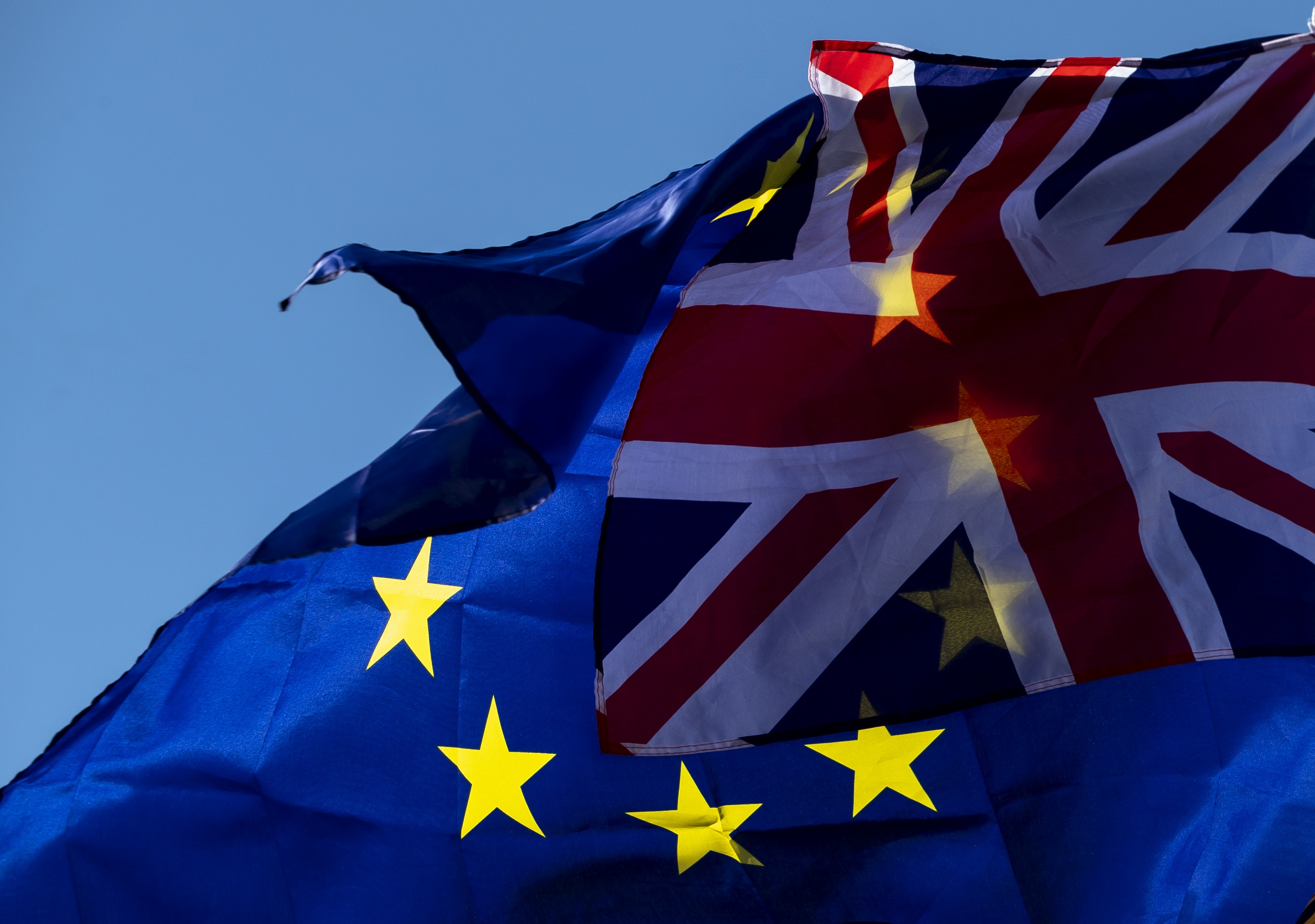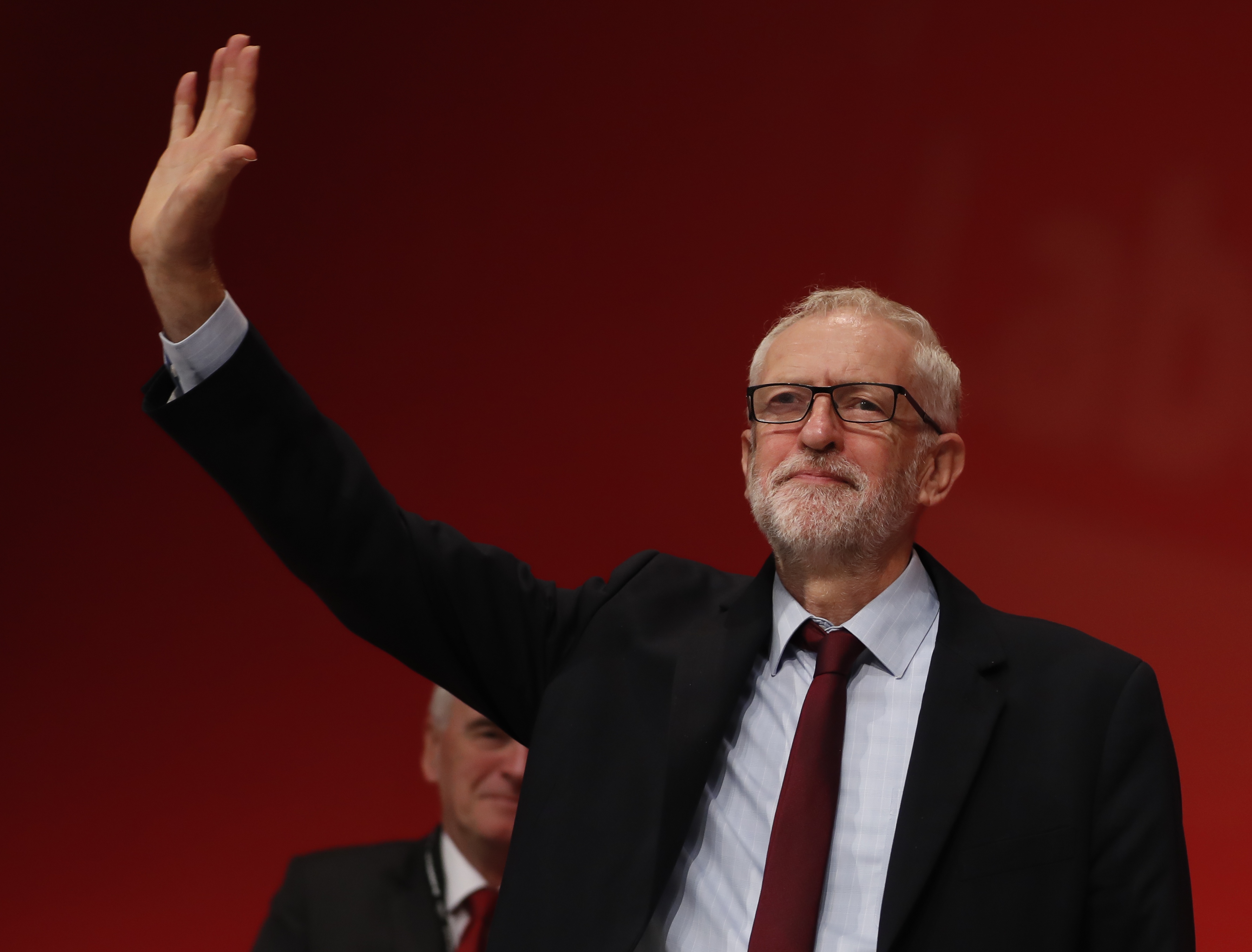Gloves are off for UK's December general election
- By Heiko Khoo
 0 Comment(s)
0 Comment(s) Print
Print E-mail China.org.cn, November 4, 2019
E-mail China.org.cn, November 4, 2019

After years of tumultuous twists and turns and parliamentary machinations over Brexit, the gloves are finally off for a December 12 general election. Jeremy Corbyn, the leader of the opposition Labor Party, officially launched his campaign on October 31 in London. Corbyn claimed to be launching the most ambitious and radical program the country has ever seen. He promised a massive "people-powered election campaign" encompassing and expressing the interests of the overwhelming majority of the population, regardless of how they voted in the Brexit referendum.
Labor's message of change aims to transform and rebuild the country. Corbyn has been visibly energized by the electoral challenge, and by the opportunities that it provides to expound new policies and a vision of a new society.
Corbyn accuses the Tories of standing for vested interests and elite privilege; by contrast, he promises that Labor will put wealth and power into the hands of the many. In response to critics who say that Labor's demands are too radical, he suggests that free personal social care for the elderly, higher wages for workers, a well-funded National Health Service (NHS), rent controls and a massive house-building program, the abolition of tuition fees for students, and the re-nationalization of rail, water and the Royal Mail are popular and urgent necessities. Labor also proposes a Green New Deal, which will create jobs and help protect the environment.
Corbyn says that Johnson's failure to leave the EU on Halloween was his own fault, and claims that the government's Brexit proposals will entail a U.S. trade deal, which will include selling off parts of the NHS to U.S. corporations. Corbyn describes Britain as a decimated economy, in which many high streets resemble ghost towns, and former soldiers sleep on the streets. He claimed that Labor represents the interests of nurses, students, office workers, engineers, and pensioners.
The December 12 election will be the first December election since 1923. Despite early nights and the possibility of freezing temperatures, Corbyn promises to run a dynamic and energetic mass campaign to bring about dramatic change in the balance of wealth and power in society.

On Brexit, Corbyn promises to renegotiate a deal with the EU based on a customs union, and then to present this deal to the public in a second referendum. The electorate would then have a choice between Labor's deal or remaining in the EU. Labor would hold a special conference to determine which of these options it would support in that referendum.
Since Jeremy Corbyn won the Labor leadership contest in 2015, most Labor MPs opposed his radical agenda. He easily fended off a leadership challenge in 2016 and fared unexpectedly well in the 2017 snap election called by Theresa May. In that election, Corbyn's energetic campaigning and Labor's radical manifesto boosted the party's support in the election, causing the Tories to lose their majority in parliament. This result exacerbated the Brexit crisis. During an election period, broadcast media must give equal airtime to the leading parties, which resulted in Labor's message receiving a much wider reception. Corbyn hopes the Labor Party will catch up and overtake the Tories' present poll lead, which has averaged about 10% recently.
While PM Boris Johnson will try to frame the entire election around Brexit by attacking parliament, Corbyn will spend most of the election discussing social and economic issues not defined by Brexit. Labor plans to spend just two days of the five-week election campaign discussing Brexit. And even when Corbyn does discuss Brexit, he will focus on issues such as workers' rights in a post-Brexit Britain – an issue on which Johnson is vulnerable – after documents leaked to the Financial Times revealed that the government's post-Brexit plans entailed curtailing workers' rights.
The central question is whether the electorate is so angry about the Brexit paralysis that it will not listen to Labor's message, or whether Brexit weariness will in fact enable Labor to shift the political debate onto its radical vision of social change.
Heiko Khoo is a columnist with China.org.cn. For more information please visit:
http://china.org.cn/opinion/heikokhoo.htm
Opinion articles reflect the views of their authors, not necessarily those of China.org.cn.
If you would like to contribute, please contact us at opinion@china.org.cn.






Go to Forum >>0 Comment(s)